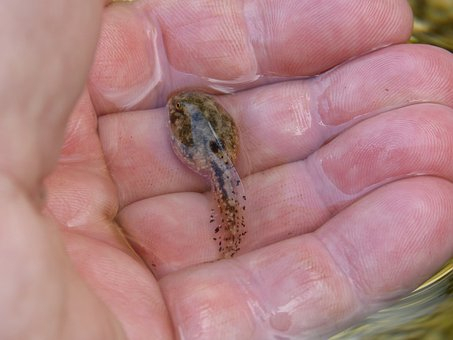
When scientists blocked a newly identified gene that can drive the growth of tadpole tails or limbs, of frogs, they found that the organs could not regrow anymore. From this, researchers hypothesized that losing the ability to regenerate might have been the result when warm-blooded animals lost this gene during their evolution.
Called c-Answer and mentioned in the journal Cell Reports, scientists first explored for similar DNA patterns in warm-blooded species, such as chicks, and recorded what made a gene look different. Next, they selected cold-blooded specific genes and explored it for unknown transmembrane proteins. They named it c-Answer.
"We suppose that genes can only disappear if removing them has advantages for the animal," says first author Daria Korotkova of the Shemyakin-Ovchinnikov Institute of Bioorganic Chemistry in Moscow. "So, we suggest that when this gene disappeared from warm-blooded species it was by a mutation, acting as a trade-off for the loss of appendage regeneration."
The scientists harnessed a computer algorithm to find out a number of genes that vanished in the genomes of warm-blooded vertebrates, including humans. However, they exist in cold-blooded animals. The researchers searched the DNA of African clawed frogs, Xenopus laevis, in order to identify which genes can be coded for regeneration.
The team "overexpressed" or blocked c-Answer in tadpole embryos. They found that when they enhanced c-Answer, they permitted tadpoles to regrow lost tails much earlier during their lives compared to those that hatched naturally. However, when tadpoles' c-Answer was blocked, they could regenerate into frogs, but they could not regrow organs that were amputated.
"C-Answer modulates at least two important molecular pathways that are common to all vertebrates," says senior author Zaraisky, head of the laboratory of molecular bases of embryogenesis at the Shemyakin-Ovchinnikov Institute of Bioorganic Chemistry. "Its loss in evolution might alter the functioning of these pathways and, accordingly, lead to major physiological transformations."
"We also found that over expression of c-Answer causes advanced brain growth and larger eyes, which surprised us, since it means c-Answer modulates for regeneration and brain development," says Korotkova. "However, it was observed that when c-Answer is blocked, Xenopus laevis tadpoles had smaller brains, so there is still work to be done in order to better understand this relationship."









